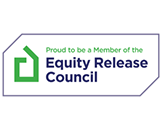Investing in Property: A Comprehensive Guide for UK and International Buyers
Investing in property can be one of the most rewarding ways to build wealth, but it’s also filled with challenges, especially if you’re navigating the market for the first time or from overseas.
Whether you’re a first-time buyer or an experienced investor, the process can feel overwhelming—ranging from choosing the right type of property to understanding the legal and tax implications.
But don’t worry, you’re not alone in this journey. Many of our clients have successfully navigated these challenges, and with guidance from us at The Lending Channel, so can you.
In this comprehensive guide, we’ll demystify the property investment process for both UK and international buyers. We’ll break down the different types of property investments, guide you through choosing the right property, explain how to secure financing, and help you understand the legal and tax considerations.
We’ll also share real-life success stories and answer some of the most common questions about property investment. By the end of this guide, you’ll have a clear roadmap to making informed and profitable property investments.
Let’s get started and explore the key aspects of property investment, ensuring you’re well-equipped to make the best decisions for your financial future.
The different types of property investments explained
When it comes to property investment, the diversity of options means there's something for everyone, regardless of your risk tolerance, financial goals, or level of involvement.
However, it also means that choosing the right type of investment requires a thorough understanding of each option.
Let’s take a closer look at the different types of property investments you can consider:
1. Residential property
Residential property investment is one of the most accessible and popular forms of property investment. This involves buying homes, such as houses or apartments, to rent out to individuals or families.
- Steady returns: Residential properties, especially in high-demand areas like major cities or popular neighbourhoods, offer steady rental income. This makes it a relatively low-risk investment, particularly in regions with a strong rental market.
- Capital appreciation: Over time, residential properties tend to increase in value, providing potential capital gains when the property is sold. This can be particularly beneficial in areas undergoing development or regeneration.
- Low involvement: For investors seeking a more hands-off approach, residential property management can be outsourced to property management companies that handle tenant relations, maintenance, and rent collection.
2. Commercial property
Commercial property investment involves purchasing properties used for business purposes, such as office buildings, retail spaces, warehouses, or industrial complexes.
- Higher returns: Commercial properties often offer higher rental yields compared to residential properties, making them attractive for investors seeking strong returns.
- Longer leases: Businesses typically sign longer leases than residential tenants, providing a more stable and predictable income stream.
- Complexity and costs: However, commercial property investment is generally more complex, with higher upfront costs and more involved management. Factors like zoning laws, business tenant relations, and property maintenance are more demanding.
- Market sensitivity: The success of a commercial property investment can be heavily influenced by the economic environment. A downturn in the business sector can lead to vacancies and reduced rental income.
3. Buy-to-let
Buy-to-let is a specific type of residential property investment where the primary objective is to rent out the property to tenants. It’s especially popular in the UK due to the high demand for rental housing.
- Income-focused: The key advantage of buy-to-let is the steady rental income it can provide. With the right property in the right location, this can generate a reliable cash flow that covers mortgage payments and other costs, with potential for profit.
- Capital growth potential: Over time, the value of the property may increase, offering potential for capital appreciation. This can be a significant return on investment when the property is eventually sold.
- Legal and regulatory considerations: Buy-to-let investors need to be aware of specific legal requirements and regulations, such as landlord responsibilities, tenancy agreements, and tax implications. It’s crucial to stay compliant to avoid fines and legal issues.
4. Off-plan property
Off-plan property investment involves buying a property before it has been built, typically from a developer.
- Lower Purchase Price: One of the main attractions of off-plan investment is the opportunity to purchase the property at a lower price than its expected market value once completed. This can offer significant capital growth if the property’s value increases by the time it’s ready to sell or rent.
- High Potential Gains: Investors can sometimes sell the property at a profit before construction is even complete, especially in booming markets. This can lead to high returns on investment.
- Risks: However, off-plan investments come with risks. Project delays, changes in market conditions, or issues with the developer can affect the investment. There’s also the uncertainty of buying a property that doesn’t physically exist yet, making it harder to assess its true value.
5. Holiday lettings
Investing in holiday lettings involves purchasing a property that is rented out to tourists or short-term visitors, particularly in popular vacation destinations.
- High Rental Income: Holiday properties can generate higher rental income compared to long-term rentals, especially during peak tourist seasons. In popular areas, weekly rental rates can be significantly higher than monthly rents from long-term tenants.
- Seasonality: However, income can be seasonal, with high earnings during peak periods but potential for vacancies during off-peak seasons. This requires careful financial planning to ensure that the property remains profitable year-round.
- Management Intensive: Holiday rentals typically require more hands-on management, including frequent tenant turnover, cleaning, maintenance, and marketing. Many investors hire property management companies to handle these tasks, which adds to the cost.
Understanding these different types of property investments allows you to make informed decisions that align with your financial goals, risk tolerance, and desired level of involvement.
By carefully evaluating your options and considering the pros and cons of each, you can choose the investment strategy that’s right for you.
How to choose the right property: Key factors to consider
Now that we've explored the different types of property investments, it's time to delve into the crucial next step: choosing the right property.
Your choice of property will significantly impact the success of your investment, influencing not only your immediate returns but also your long-term financial outcomes.
To help you make an informed decision, let’s break down the key factors you should consider when selecting the right property for your investment portfolio.
1. Location
The adage "location, location, location" holds true in property investment for good reason. The location of your property is arguably the most critical factor in determining its value, rental yield, and potential for appreciation.
- Rental demand: Look for areas with high rental demand, which are often near major cities, universities, or business hubs. Locations with good employment opportunities, strong economies, and a steady influx of residents typically offer consistent rental demand.
- Transport links: Properties near public transport, major roads, and other transport hubs are more attractive to tenants and buyers alike. Easy access to public transportation can significantly enhance a property’s appeal, especially in urban areas.
- Amenities and infrastructure: Consider the availability of schools, parks, shopping centres, and healthcare facilities. These amenities increase the desirability of a location and can make your property more attractive to potential tenants or buyers.
- Future development: Research any upcoming infrastructure projects or urban development plans in the area. Properties in areas slated for regeneration or improvement projects often experience significant value increases over time.
2. Budget
Your budget is a critical factor that will guide your property search. It’s important to establish a clear budget that includes not just the purchase price, but also additional costs that come with property ownership.
- Purchase price: Set a realistic budget for the purchase price, ensuring you’re not overextending yourself financially. Remember that a more expensive property doesn’t necessarily mean a better investment; the key is finding a property that offers good value for your money.
- Additional costs: Factor in costs such as stamp duty, legal fees, valuation fees, and any renovation or maintenance expenses. These additional costs can add up quickly, so it’s essential to budget for them from the outset.
- Financing options: Explore mortgage options and ensure you understand the terms and conditions. Whether you’re a UK resident or an international buyer, securing the right financing is crucial to staying within your budget.
3. Property Condition
The condition of the property you choose can have a significant impact on both your initial investment and your long-term maintenance costs.
- Upfront costs: A property in excellent condition may have a higher purchase price, but it will likely save you money in the long run by reducing the need for immediate repairs or renovations. On the other hand, a fixer-upper may come with a lower price tag but require significant investment in repairs and upgrades.
- Maintenance: Consider the ongoing maintenance required to keep the property in good condition. Older properties or those with extensive landscaping may require more upkeep, which can eat into your rental income or increase your costs if you’re managing the property yourself.
- Inspection: Always conduct a thorough inspection before purchasing. This will help you identify any potential issues that could affect the property’s value or your ability to rent it out.
4. Rental yield
Rental yield is a critical metric for property investors, as it indicates how much income the property will generate relative to its value.
- Calculating rental yield: Rental yield is calculated by dividing the annual rental income by the property’s purchase price and then multiplying by 100 to get a percentage. For example, if a property costs £200,000 and generates £10,000 in annual rent, the rental yield would be 5%.
- High vs. low yield: A higher rental yield typically indicates a better return on investment, but it’s important to balance yield with other factors like location and property condition. Sometimes, properties in less desirable areas may offer high yields but come with higher risks, such as difficulty finding tenants.
- Market research: Research rental rates in the area to ensure your expected yield is realistic. Consider current trends and demand for rental properties similar to the one you’re considering.
5. Future growth potential
Finally, consider the potential for your property’s value to increase over time. This long-term appreciation can significantly boost your overall return on investment.
- Regeneration projects: Properties in areas that are being regenerated or developed often see substantial increases in value. Keep an eye on local government plans or private developments that could enhance the area’s appeal.
- Economic growth: Look for locations with strong economic fundamentals, such as job growth, new businesses, and infrastructure improvements. These factors can drive demand for housing and lead to price appreciation.
- Property type: Some property types have better growth potential than others. For example, properties in up-and-coming urban areas or those near planned transportation hubs may appreciate faster than those in more established or rural areas.
By carefully evaluating these factors—location, budget, property condition, rental yield, and future growth potential—you can choose a property that aligns with your investment strategy and financial goals.
.png)
Securing financing: Mortgages for UK and international buyers
Securing the right financing is a crucial part of any property investment journey. Whether you’re a UK resident or an international buyer, understanding your mortgage options and how to navigate the financing landscape will play a significant role in the success of your investment.
Now, let’s explore the key considerations for both UK and international buyers when it comes to securing a mortgage.
Mortgages for UK Buyers
For UK residents, the mortgage market offers a wide array of products tailored to different needs, from first-time buyers to seasoned investors.
Here’s what you need to know:
Variety of mortgage products
UK buyers have access to a range of mortgage options, including residential mortgages for personal use and buy-to-let mortgages for investment properties. Buy-to-let mortgages are particularly popular among property investors and are specifically designed for those who plan to rent out their property to tenants.
These mortgages typically require a larger deposit—usually around 20-25%—and have slightly higher interest rates compared to residential mortgages.
Interest rates and fees
When comparing mortgage deals, it’s important to consider not just the interest rate, but also the associated fees. These can include arrangement fees, valuation fees, and legal fees.
Some mortgages may offer lower interest rates but come with higher fees, which can offset the savings from the lower rate.
Conversely, a mortgage with a slightly higher interest rate but lower fees might be more cost-effective in the long run. Always calculate the total cost of the mortgage over the term to ensure you’re getting the best deal.
Mortgage brokers
Engaging with a mortgage broker can be incredibly beneficial, especially if you’re not familiar with the mortgage market or have complex financial needs.
Mortgage brokers have access to a wide range of lenders, including some that only offer their products through brokers. They can help you navigate the different options, negotiate better terms, and find a mortgage that suits your financial situation and investment goals.
A good broker will also help you understand the fine print and avoid any potential pitfalls.
Mortgages for international buyers
For international buyers, securing a mortgage in the UK can be more challenging but is entirely achievable with the right approach.
Here are the key points to consider:
- Specialised mortgage products: While UK residents have a broader selection of mortgage products, international buyers can still access tailored mortgage options through specific lenders. These products are designed for non-residents or expats who want to invest in UK property. However, the requirements for these mortgages are typically more stringent, with higher interest rates and a larger required deposit, usually between 25-30%.
- Deposit requirements: Lenders often view international buyers as higher risk due to the potential complexities of cross-border transactions and the difficulty of pursuing legal action in the event of a default. As a result, they may require a larger deposit. This higher deposit reduces the lender’s risk and can also improve your chances of securing a favourable mortgage deal.
- Financial documentation: International buyers will need to provide extensive financial documentation to prove their income, assets, and creditworthiness. This may include tax returns, bank statements, proof of income, and details of other investments. It’s important to have these documents organised and ready to present to potential lenders to expedite the mortgage application process.
- Navigating different regulations: International buyers must also be aware of the differences in regulations between their home country and the UK. For example, tax implications, currency exchange controls, and legal requirements can vary significantly. Consulting with a financial advisor who understands both UK and international regulations is essential to avoid any unexpected issues.
Currency considerations for international buyers
One of the unique challenges for international buyers is the impact of currency exchange rates on the cost of their investment. Here’s how to manage this effectively:
- Exchange rate fluctuations: The value of your home currency relative to the British pound can fluctuate significantly over time. These fluctuations can affect the overall cost of your property investment, especially if you’re making mortgage payments or transferring large sums of money to the UK. A sudden drop in your home currency’s value could increase the cost of your mortgage payments, while a rise could reduce it.
- Fixed-rate mortgages: To protect against these fluctuations, many international buyers opt for fixed-rate mortgages. A fixed-rate mortgage locks in your interest rate for a set period, typically between two and ten years. This means your mortgage payments will remain consistent regardless of changes in exchange rates, providing financial stability and predictability.
- Currency hedging: Some investors use currency hedging strategies to manage the risk of exchange rate fluctuations. This involves using financial instruments like forward contracts or options to lock in a specific exchange rate for future transactions. While this can add a layer of complexity to your investment, it can also protect you from adverse currency movements.
Working with mortgage brokers and advisors
Whether you’re a UK resident or an international buyer, working with experienced mortgage brokers and financial advisors can make a significant difference in securing the best financing deal.
Here’s how we can help:
Access to exclusive deals
Mortgage brokers like our team at The Lending Channel often have access to exclusive deals that aren’t available directly to the public.
These can include lower interest rates, reduced fees, or more favourable terms. A broker can help you find and secure these deals, potentially saving you thousands of pounds over the life of your mortgage.
Expert guidance
Navigating the mortgage market can be complex, especially for international buyers. A mortgage broker or financial advisor can provide expert guidance. We help you understand your options, complete your application, and avoid common mistakes. We can also assist with the legal and regulatory aspects of securing a mortgage, ensuring you’re fully compliant with UK laws.
Tailored advice
Every investor’s situation is unique, and what works for one person may not be suitable for another.
Agood and expert advisor will take the time to understand your financial situation, investment goals, and risk tolerance, and then recommend a mortgage product that’s tailored to your needs. This personalised approach can help you make more informed decisions and achieve better outcomes.
Navigating the legalities: what you need to know
Investing in property is not just about finding the right location or securing the best mortgage—it’s also about navigating a complex web of legal requirements.
Understanding the legal aspects of property investment is crucial to ensuring a smooth transaction and protecting your investment.
We’ve compiled everything you need to know about the legalities involved in property investment:
Conveyancing: The legal transfer of property
Conveyancing is the legal process of transferring property ownership from the seller to the buyer. It involves several key steps that ensure the transaction is legally sound and that both parties’ interests are protected.
Hiring a solicitor or conveyancer
The first step in the conveyancing process is to hire a solicitor or licensed conveyancer who specialises in property transactions. Their role is to manage the legal aspects of the purchase, including conducting searches, handling contracts, and transferring funds.
Property searches
Your solicitor will conduct various searches to ensure there are no legal issues or restrictions affecting the property. These searches typically include checking for any planning permissions, verifying the property’s legal boundaries, and ensuring there are no outstanding debts or legal disputes associated with the property.
Drafting and reviewing contracts
The solicitor will draft the contract of sale, outlining the terms and conditions of the transaction. They will also review any existing contracts to ensure they are fair and protect your interests. It’s crucial to fully understand the terms of the contract before signing, as this document is legally binding.
Completion and transfer of ownership
Once all checks are complete and both parties are satisfied, the transaction moves to completion. At this stage, funds are transferred from the buyer to the seller, and ownership of the property is officially transferred to the buyer. The solicitor will handle the registration of the property with the Land Registry, ensuring that your ownership is legally recognised.
Contracts: understanding your obligations
Contracts are a fundamental part of any property transaction, and understanding your obligations under these contracts is essential.
Sales contract
The sales contract is the primary document that outlines the terms of the property sale. It includes details such as the purchase price, deposit amount, completion date, and any conditions that must be met before the sale can be finalised. It’s important to review this contract carefully and seek legal advice if you’re unsure about any of the terms.
Mortgage agreement
If you’re financing your property purchase with a mortgage, you’ll also need to sign a mortgage agreement with your lender. This contract outlines the terms of your loan, including the interest rate, repayment schedule, and any penalties for late payments or early repayment. Understanding these terms is crucial to managing your mortgage effectively and avoiding financial penalties.
Lease agreements
If you’re purchasing a leasehold property, you’ll need to understand the terms of the lease agreement. This document outlines your rights and responsibilities as a leaseholder, including any ground rent, service charges, and restrictions on how you can use the property. Lease agreements can be complex, so it’s important to seek legal advice to ensure you fully understand your obligations.
Stamp Duty Land Tax (SDLT): Understanding Your Tax Obligations
Stamp Duty Land Tax (SDLT) is a tax you must pay when you purchase property or land in the UK.
The amount of SDLT you owe depends on several factors, including the purchase price of the property, whether it’s your primary residence, and whether you already own other properties.
Rate calculation
SDLT is calculated as a percentage of the property’s purchase price, with different rates applied to different portions of the price. For example, in the UK, properties priced up to £250,000 are typically exempt from SDLT for first-time buyers, but higher-priced properties incur a tax. If you’re purchasing an additional property, such as a buy-to-let or holiday home, you’ll pay a higher rate of SDLT.
Payment
SDLT must be paid within 14 days of completing the property purchase. Your solicitor will usually handle this payment on your behalf, ensuring that it’s made on time and in the correct amount.
Exemptions and reliefs
There are various exemptions and reliefs available for certain types of buyers or properties. For example, first-time buyers may be eligible for reduced rates of SDLT, and some properties in designated disadvantaged areas may qualify for relief. It’s important to understand whether you qualify for any of these exemptions, as they can significantly reduce your tax liability.
Legal considerations for international buyers
For international buyers, navigating the legal aspects of property investment in the UK can be more complex due to differences in laws, regulations, and tax obligations.
Here are some additional considerations:
Visas and residency
While owning property in the UK doesn’t automatically grant you residency, certain types of visas may allow you to live in the UK if you invest in property. It’s important to understand the visa requirements and any residency obligations before purchasing property.
Tax implications
International buyers are subject to UK tax laws, including SDLT and capital gains tax. However, your tax obligations may also extend to your home country, depending on your residency status and local tax laws. Consulting with a tax advisor who specialises in international property investment can help you navigate these complexities and ensure compliance with all relevant tax laws.
Legal representation
It’s advisable for international buyers to work with a UK-based solicitor who is experienced in handling transactions for non-residents. They can help you understand the legal requirements, protect your interests, and ensure that your purchase complies with UK law.
Compliance with regulations: Ensuring legal and financial security
Finally, it’s essential to ensure that your property investment complies with all relevant regulations, both in the UK and in your home country if you’re an international buyer.
Landlord regulations
If you plan to rent out your property, you must comply with landlord regulations, including safety standards, tenant rights, and property licensing requirements. Failure to comply with these regulations can result in fines or legal action.
Property management laws
If you’re hiring a property management company to oversee your investment, ensure that they are fully licensed and compliant with UK property management laws.
This will protect you from potential legal issues and ensure that your property is managed to the highest standards.
Anti-Money Laundering (AML) Regulations
The UK has strict anti-money laundering regulations that require buyers to prove the source of their funds. Your solicitor will conduct due diligence to ensure that the funds you use to purchase the property are legitimate and that the transaction complies with AML laws.
Understanding tax implications for property investors
When investing in property, it's important to understand how taxes will affect your income and overall returns.
Knowing the different types of taxes you may owe and how to plan for them can help you make better decisions and keep more of your profits.
We’ve prepped this guide to the key tax implications for property investors in the UK specially for you:
Income tax on rental income
If you rent out a property, the money you make from your tenants is considered income, and it’s subject to income tax.
Here’s how it works
The rental income you receive is added to your other sources of income, such as your salary or pension, and taxed at your usual income tax rate. The more you earn, the higher the tax rate you might pay.
Allowable expenses
The good news is that you can deduct certain expenses from your rental income before paying tax. These include costs like letting agent fees, property maintenance, insurance, and mortgage interest (though the rules around mortgage interest deductions have changed in recent years).
Personal allowance
If your total income, including rental income, is below a certain threshold, you may not need to pay tax on some of it, thanks to your personal allowance.
Capital Gains Tax (CGT)
If you sell a property for more than you paid for it, you might need to pay capital gains tax on the profit.
How it works
Capital gains tax is applied to the difference between what you paid for the property and what you sell it for. If the property has increased in value, that profit is subject to CGT.
Exemptions
Your primary residence (the home you live in) is usually exempt from CGT. However, investment properties, second homes, and buy-to-let properties are subject to this tax.
Allowances
There’s a tax-free allowance for capital gains, meaning you only pay tax on profits above a certain amount. The exact rate you’ll pay depends on your overall income and the size of the gain.
Stamp Duty Land Tax (SDLT)
Stamp duty is a tax you pay when you buy property or land in the UK.
How it works
The amount of stamp duty you pay depends on the property’s purchase price and, in some cases, whether you’re buying an additional property or your first home.
Additionalpropertysurcharge
If you’re buying a second home or an investment property, you may need to pay an extra surcharge on top of the standard stamp duty rate.
Reliefs and exemptions
First-time buyers can benefit from stamp duty relief, which reduces or eliminates the amount of stamp duty they need to pay on properties up to a certain value.
Inheritance Tax (IHT)
If you pass on your property to your heirs, they might need to pay inheritance tax on its value.
How it works
Inheritance tax is applied to the value of your estate (which includes your property) above a certain threshold when you die. The standard inheritance tax rate is applied to the portion of your estate that exceeds this threshold.
Exemptions
There are various exemptions and reliefs, such as passing your estate to a spouse or civil partner, which may reduce or eliminate the inheritance tax owed.
Tax reliefs and deductions
Understanding and making use of available tax reliefs and deductions can significantly reduce your tax bill and increase your net returns.
Mortgage interest relief
Although the rules have changed, you can still get some relief on the interest you pay on your mortgage, albeit in a reduced form.
Wear and tear allowance
If you’re renting out a furnished property, you might be able to claim for wear and tear on furniture and appliances, although the exact rules can vary.
Property management costs
You can deduct expenses related to managing and maintaining the property, such as repairs, letting agent fees, and legal costs.
Why it’s important to get tax advice
Property tax can be complex, and the rules often change. Getting advice from a tax professional who specialises in property investment can help you navigate these complexities, ensure you’re paying the right amount of tax, and make the most of any available reliefs.
They can also help you plan ahead, so you’re not caught off guard by unexpected tax bills.
By understanding these tax implications and planning accordingly, you can protect your investment, maximise your returns, and achieve your financial goals as a property investor
Managing your property: From letting to maintenance
Once you've invested in a property, effective management is key to ensuring it remains a profitable and hassle-free asset.
Managing a property involves more than just finding tenants—it's about maintaining the property, handling tenant relationships, and ensuring everything runs smoothly.
Here’s a guide to managing your property, covering everything from letting to ongoing maintenance:
Letting your property
Finding the right tenants is crucial to a successful property investment.
Good tenants will pay rent on time, take care of your property, and stay for extended periods, reducing the costs associated with tenant turnover.
Advertising your property
Start by listing your property on popular rental platforms, social media, and through local letting agents. Make sure your listing is clear, with high-quality photos and a detailed description of the property, including key features and local amenities.
Screening tenants
Once you have interested applicants, it's important to screen them carefully. This includes checking their credit history, employment status, and references from previous landlords. The goal is to find reliable tenants who are likely to pay rent on time and look after your property.
Setting up a tenancy agreement
A tenancy agreement is a legally binding contract between you and your tenant. It should outline the terms of the rental, including the rent amount, payment schedule, length of the tenancy, and responsibilities of both parties. It's wise to have this agreement reviewed by a legal binding.
Maintaining your property
Ongoing maintenance is key to preserving the value of your property and ensuring it remains attractive to tenants. Regular upkeep can prevent small issues from turning into costly repairs.
Routine inspections
Schedule regular inspections to identify any maintenance issues early. These inspections help ensure that tenants are keeping the property in good condition and allow you to address minor repairs before they become major problems.
Emergency repairs
Be prepared to handle emergency repairs quickly, such as plumbing issues, heating failures, or electrical problems.
Having a reliable network of contractors can make it easier to address these issues promptly, keeping your tenants satisfied and your property in good shape.
Ongoing maintenance
Regular maintenance tasks, such as gutter cleaning, lawn care, and servicing appliances, should be scheduled to keep the property in top condition.
Regular maintenance not only preserves the property’s value but also makes it more appealing to tenants.
Handling tenant relationships
Building positive relationships with your tenants can lead to longer tenancies, timely rent payments, and fewer issues overall.
Clear communication
Establish clear lines of communication from the start. Be responsive to tenant inquiries and concerns, and provide them with a reliable way to reach you in case of emergencies.
Setting expectations
Make sure tenants understand their responsibilities, such as keeping the property clean, reporting issues promptly, and adhering to the terms of the tenancy agreement. Clear expectations can prevent misunderstandings and conflicts.
Addressing issues
When issues arise, address them promptly and professionally. Whether it’s a late rent payment or a repair request, dealing with problems quickly shows your tenants that you take their concerns seriously and are committed to maintaining a positive relationship.
Deciding between self-management and hiring a property manager
One of the key decisions you’ll need to make is whether to manage the property yourself or hire a property management company.
Self-management
Managing the property yourself can save money on management fees and give you direct control over how your property is managed. However, it requires a significant time commitment and a willingness to handle all aspects of property management, from maintenance to tenant relations.
Hiring a property manager
If you prefer a hands-off approach or have multiple properties, hiring a property management company might be the better option. A good property manager will handle everything from finding tenants to managing maintenance and ensuring legal compliance. While this comes at a cost, it can save you time and reduce stress.
Effective property management is crucial to ensuring your investment remains profitable and hassle-free.
By carefully selecting tenants, staying on top of maintenance, and fostering positive tenant relationships, you can protect your property’s value and enjoy steady rental income.
Whether you choose to manage your property yourself or hire a professional, the key is to stay proactive and organised. With the right approach, managing your property can be a rewarding aspect of your investment strategy.
FAQs: Common questions about property investment answered
Investing in property can be a rewarding but complex endeavour, and it’s natural to have questions before diving in.
Here are some of the most frequently asked questions we get about property investment, along with answers to help you make informed decisions.
What is the best type of property to invest in?
The best type of property to invest in depends on your goals, budget, and risk tolerance.
Residential properties are generally more stable and easier to manage, making them ideal for first-time investors.
Commercial properties can offer higher returns but come with greater risks and management complexities. Consider your long-term objectives and how involved you want to be in managing the property.
How much money do I need to start investing in property?
The amount of money needed to start investing varies depending on the property type and location. For residential buy-to-let properties in the UK, you typically need a deposit of 20-25% of the property’s value.
Additionally, you should budget for legal fees, stamp duty, and other costs. It’s advisable to have a financial cushion to cover unexpected expenses.
What is a good rental yield?
A good rental yield typically ranges from 5% to 8%, though this can vary by location and property type.
Rental yield is calculated by dividing the annual rental income by the property’s purchase price, then multiplying by 100 to get a percentage.
Higher yields indicate better returns, but it’s important to balance yield with other factors like property appreciation and tenant stability.
How do I finance a property investment?
Financing a property investment can be done through various means, including buy-to-let mortgages, personal savings, and investment loans.
For UK buyers, buy-to-let mortgages are a popular option, requiring a larger deposit but offering competitive interest rates.
International buyers may face stricter lending criteria and higher deposit requirements but can still access mortgage products designed for non-residents.
What are the tax implications of property investment?
Property investors need to be aware of several taxes, including income tax on rental income, capital gains tax when selling a property, and stamp duty land tax when purchasing a property.
Additionally, if you’re a landlord, you may be able to deduct certain expenses, such as mortgage interest, from your taxable income.
It’s crucial to consult a tax advisor to understand your specific obligations and opportunities for tax relief.
What are the risks involved in property investment?
Property investment carries several risks, including market fluctuations, tenant turnover, and unexpected maintenance costs.
The property market can be affected by economic changes, leading to price drops or difficulties in finding tenants. It’s important to diversify your investments, conduct thorough research, and maintain a financial cushion to mitigate these risks.
How do I choose the right location for my property investment?
Location is one of the most important factors in property investment. Look for areas with strong rental demand, good transport links, and potential for capital growth.
Research local market trends, upcoming infrastructure projects, and economic conditions to choose a location that aligns with your investment goals.
How long should I hold onto an investment property?
The ideal holding period for an investment property depends on your financial goals and market conditions. Some investors aim for long-term growth, holding onto properties for 10-20 years to maximise capital appreciation.
Others may prefer shorter-term investments, focusing on rental income and selling when the market is favourable. It’s essential to have a clear strategy and be flexible enough to adapt to market changes.
Can I invest in UK property if I’m based overseas?
Yes, international buyers can invest in UK property. While the process is more complex, with stricter lending criteria and higher deposit requirements, many UK lenders offer mortgage products for non-residents.
Additionally, it’s important to consider currency exchange rates, legal requirements, and tax implications when investing from abroad.
Working with a mortgage broker and legal advisor familiar with international investments can help navigate these challenges.
These FAQs cover some of the most common concerns among property investors. Having a clear understanding of these basics will equip you with the knowledge needed to navigate the property investment landscape with confidence.
Did we miss anything? Our team at The Lending Channel is here to help. Don’t hesitate to reach out to us—we’re ready to provide the answers and guidance you need to make informed property investment decisions.
Wrapping up your property investment journey
Investing in property can be a powerful way to build wealth and secure your financial future, but it’s essential to navigate the process with knowledge and care.
From understanding different types of investments and managing your property to handling taxes and legalities, being well-informed is key to making the most of your investment.
At The Lending Channel, we’re here to support you every step of the way. Whether you’re just starting out or looking to expand your portfolio, our expert team is ready to help you find the best financing options, answer your questions, and guide you through the complexities of property investment.
Ready to take the next step? Contact us today to learn more about how we can assist you in achieving your property investment goals. Let’s work together to turn your investment dreams into reality!

.png)
.png)



.jpg)

.png)
























